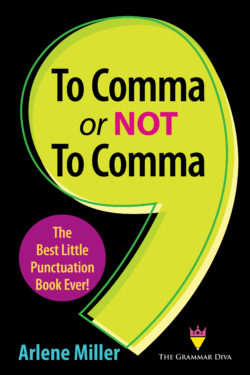 We know what a verb is. And we know that a phrase is a group of words, usually a small group. So a phrasal verb is a verb that is more than one word. Usually it is a verb followed by a preposition: hand out. Well, that isn’t quite right because hand is a noun. But when paired with out, it becomes a verb. You can also pair hand with in, off, over, and to and voila! You have a verb. Most phrasal verbs, however, are verbs paired with prepositions — or what seem to be prepositions. Actually, they are often referred to as adverbs, not prepositions.
We know what a verb is. And we know that a phrase is a group of words, usually a small group. So a phrasal verb is a verb that is more than one word. Usually it is a verb followed by a preposition: hand out. Well, that isn’t quite right because hand is a noun. But when paired with out, it becomes a verb. You can also pair hand with in, off, over, and to and voila! You have a verb. Most phrasal verbs, however, are verbs paired with prepositions — or what seem to be prepositions. Actually, they are often referred to as adverbs, not prepositions.
A preposition is generally thought to be part of a prepositional phrase: preposition+article (usually)+noun or pronoun:
- in the doghouse
- above the clouds
- under the table
- to the mall
- between the houses
- outside the lines
When you put what looks like a preposition after a verb, it becomes an adverb: She walked outside. Please come in.
In any case, a verb that contains more than one word is a phrasal verb. And many phrasal verbs are also nouns. However, when you make a phrasal verb into a noun, it usually becomes one word, and that is where many people mess up. I see phrasal verbs written as one word, when they should be two. It is the noun that is one word. It is not as common that I will see the noun written as two words. Here are some examples of phrasal verbs and the nouns they become:
- I need to set up the exhibit. I don’t like the setup of the room.
- I need to back up my computer. I need to perform a backup on my computer.
- Please take out the trash. Let’s get takeout for dinner.
- We will blow up these balloons. My boss and I had a huge blowup.
- Tomorrow we will break down the exhibit. She had a nervous breakdown. (Is that even a thing anymore?)
- Break up the peanut brittle into pieces for everyone. She and her boyfriend just had a breakup.
- I am going to break out my dancing shoes. My skin is having another of its breakouts.
- The candle will burn out shortly. I have burnout from my stressful job.
- Hand out these papers to the class. Did you get the handout to help you study for the quiz?
- We will kick off Back to School Week tomorrow. Can you come to the kickoff on Saturday?
- It is time to let down your defenses. When vacation ends, it is a real letdown.
- I need to make up my test today. You are wearing too much makeup.
- Did you pay back your loan yet. This is payback for how you treated me!
- You need to show off that new ring! You are such a showoff!
- I work out for an hour every day. I am really tired from my workout.
- Did you mix up the days for the parties? It was just an innocent mixup.
One way to remember that the verb is two words and the noun one is simply by the old pause trick. We usually pause when saying the phrasal verb, but not when saying the noun.
GRAMMAR DIVA NEWS
Calling all writers, would-be writers, editors, marketers, designers, and anyone interested in writing or publishing!
Saturday, September 8 is Writer’s World at Dominican University in San Rafael, California. This event is sponsored by the Bay Area Independent Publishers Association. All day— with vendors, speakers, workshops, music, books! I will be speaking at 11 a.m. about The Wonderful World of Words: What is the difference between a writer and an author? What leeway do writers have with grammar rules? Grammar and punctuation Q and A, and Fabulous Word Trivia! Click here for more info!
Also on Saturday, September 8 is the Local Author Gala at the Petaluma branch of the Sonoma County Library. This event is free and goes from 2 to 5 p.m. I will be there too selling my books, and meeting and greeting!
To Comma or Not to Comma is now available on all e-readers including Kindle, Nook, Kobo, iBooks, Overdrive, etc. I have just sent the index for the printed book to the designer. The cover designer has the back covers. So, printed book very soon!




What a great and simple explanation of phrasal verbs. I love the way you don’t overuse complex grammatical terms that are so confusing to language learners.
Thanks so much! Must confess that I wrote this post in a real hurry, so I am glad it came out okay!
Dear Ms Miller,
And I would give even stress to the phrasal verb: [‘hænd’in] and stress only the first syllable in the noun: [‘hændaut]. May be that helps as well.
Good point! In the phrasal verb, the second word is stressed, but in the noun, the first syllable is stressed. Thank you!